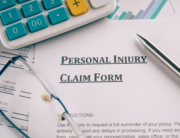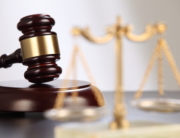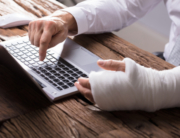You might know what a deposition is — you might have even given one — but after the interviews occur, you might be left wondering what happens after a deposition in a personal injury case. Below, we detail what you can expect from the process.
What Happens After a Deposition in a Personal Injury Case?
The audio recording or court reporter’s typing will not be usable until transcribed. This is because court reporters use shorthand instead of actual words. Court reporters used to type on devices that looked like small typewriters, with a roll of paper running through the machine. Afterward, the reporter would manually type up the transcript into something that could be understood by others.
Now, court reporters either type up or feed an audio recording directly onto a computer. Software will translate the result into a transcript. The court reporter will revise the transcript and correct any errors. If you did not waive the right to do so, you and your lawyer can proofread the transcript and have the reporter correct typographical errors, but you cannot change the substance of any of your responses.
The reporter will then finalize the transcript and send a full or condensed copy to both attorneys. In some cases, the reporter will file the transcript with the court, depending on local convention. The lawyers can use the deposition transcript at court in the trial.
What Is the Purpose of a Deposition in a Personal Injury Case?
Depositions serve many purposes. They memorialize your testimony in case you are not able to testify at trial. They are also useful evidence in case anyone attempts to change their story at trial. And they lay out far more facts than are contained in the lawsuit documents filed with the court. Depositions can help to settle cases.
Your lawyer will review the deposition with you to discuss the strengths and weaknesses of your case. This step is a vital part of trial preparation. The deposition is like a dress rehearsal for trial. In your deposition, your lawyer will see how you perform as a witness. This experience gives him insight into how you will do on the witness stand during the trial.
What Are Common Mistakes Plaintiffs Make During Injury Depositions?
Because depositions usually happen in a conference room at a law office, and not in a courtroom, sometimes the deponent (the person the lawyers question) lets her guard down and says things she would not want the judge to hear. A deposition transcript can become a public record and can haunt a deponent for years down the road.
Do Not Handle a Deposition Alone. Get Help from Montero Law Center.
You should never go into a deposition without having your own lawyer at your side. If you suffered injuries in an accident that was not your fault, contact our personal injury team. We will be there for the deposition and the entire claims process. Call us today at 954-767-6500.
 English
English  Español
Español 




